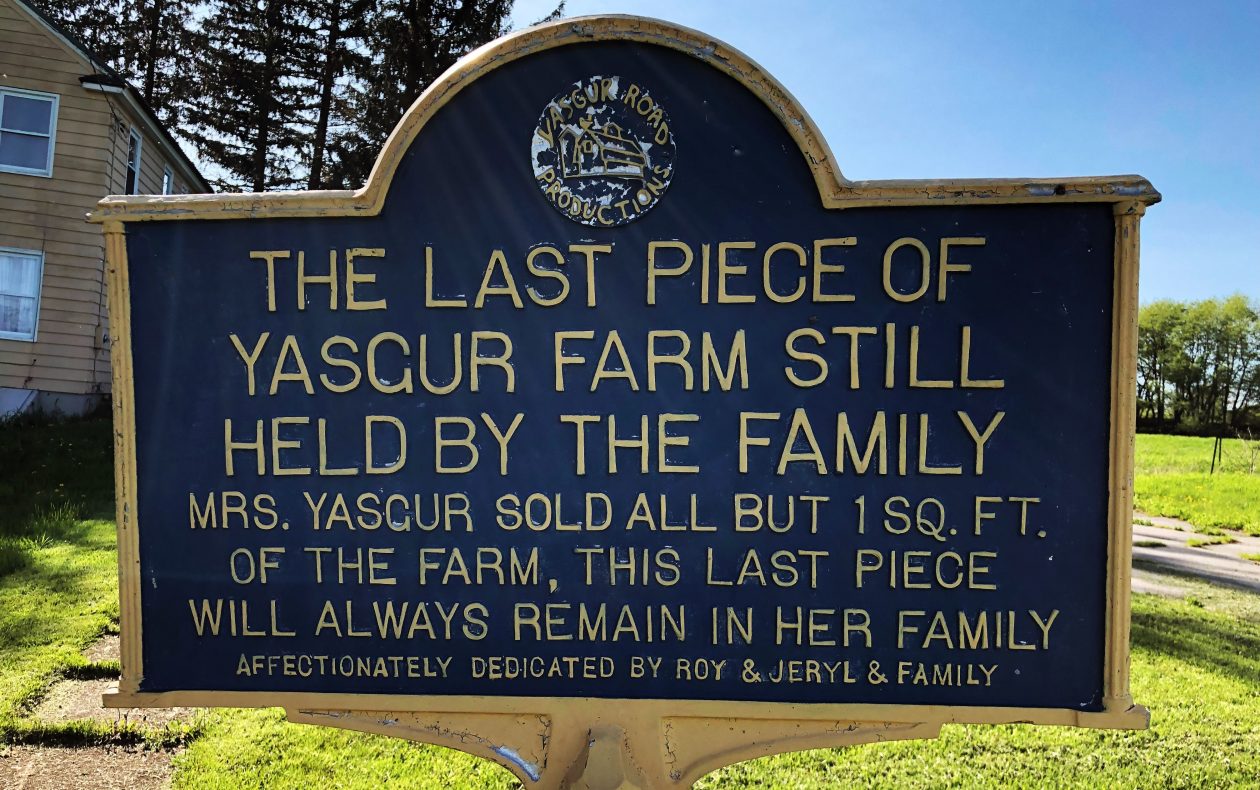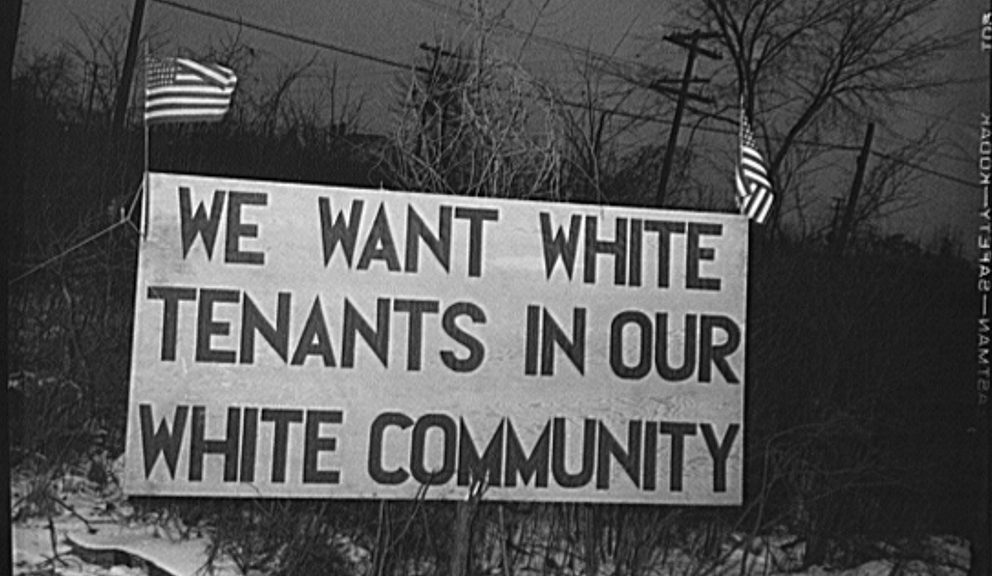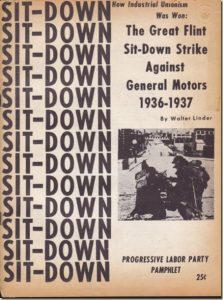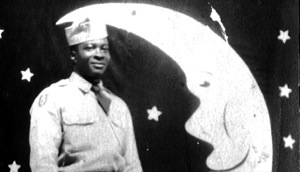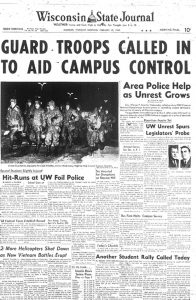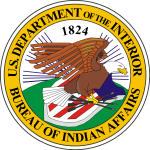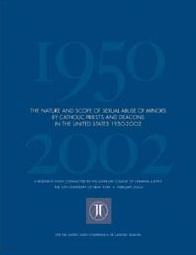February 27 Peace Love Art Activism
Native Americans
President Jefferson plans Native American removal
February 27, 1803: in a private letter to William Henry Harrison, Governor of the Indiana Territory, President Thomas Jefferson outlined an Indian policy that would result in the natives ceding land to the United States. He stated [my underlining]: To promote this disposition to exchange lands, which they have to spare and we want, for necessaries, which we have to spare and they want, we shall push our trading uses, and be glad to see the good and influential individuals among them run in debt, because we observe that when these debts get beyond what the individuals can pay, they become willing to lop them off by a cession of lands. He added, “…we presume that our strength and their weakness is now so visible that they must see we have only to shut our hand to crush them, and that all our liberalities to them proceed from motives of pure humanity only. Should any tribe be foolhardy enough to take up the hatchet at any time, the seizing the whole country of that tribe, and driving them across the Mississippi, as the only condition of peace, would be an example to others, and a furtherance of our final consolidation.” (complete letter from the National Archive site) (see October 5, 1813)
February 27 Peace Love Art Activism
Feminism
Voting Rights
February 27, 1922: in Leser v. Garnett the US Supreme Court held, that the Nineteenth Amendment to the US Constitution had been constitutionally established. (next Feminism, see Sept 22; VR, see March 7, 1927)
February 27 Peace Love Art Activism
US Labor History
Woolworth’s
February 27, 1937: four hundred fifty Woolworth’s workers and customers occupied a store in Detroit for eight days in support of Waiters and Waitresses Union. (see Mar 1)
Sit-down strikes
February 27, 1939: the Supreme Court, in National Labor Relations Board v. Fansteel Metallurgical Corp., effectively outlawed sit-down strikes. (see June 5)
Montana Coal and Iron Company
February 27, 1943: an explosion at the Montana Coal and Iron Company mine killed 74 workers. It was the worst mining disaster in Montana’s history. The small communities of Washoe and Bearcreek, Montana, consisted almost entirely of mine workers and their families. Many of them worked Smith Mine #3 for the Montana Coal and Iron Company. On a cold Saturday morning, February 27, 77 men were working in the mine when, at 9:30 a.m., a huge explosion rang out. The people of Washoe and Bearcreek heard the roar and then the long, wailing siren that followed. The exact cause of the explosion is not known, though some of the company’s miners claimed methane gas had built up in some abandoned shafts and was ignited after a cave-in. Of the 77 workers in the mine at the time of the explosion, only three made it out alive. (see May 31)
WV teacher strike
February 27, 2018: teacher and service personnel union leaders said that after meeting with the governor the work stoppage that had closed public schools in West Virginia provisionally ended and they would return to school on March 1.
Gov. Jim Justice announced a 3 percent pay increase for all state employees this year, with an additional 2 percent hike for those who work in education, including teachers and service personnel. It remained unknown whether leaders of the House and Senate would go along with the deal. (USLH & WV, see Mar 1)
February 27 Peace Love Art Activism
Calvin Graham
February 27, 1943: Graham turned himself in at the Houston recruiting station. (see Graham for expanded story)
February 27 Peace Love Art Activism
BLACK HISTORY
Detroit
February 27, 1943: with a cross burning in a field near the homes, 150 angry whites picketed the a Detroit housing project vowing to keep out any Black homeowners. (see Feb 28)
Wharlest Jackson
The Armstrong Tire & Rubber plant in Natchez, Tennessee had offered Wharlest Jackson a promotion to its chemical mixing plant. Jackson had worked at the plant for 12 years and was also the treasurer of the local NAACP chapter.
On February 27, 1967, as Jackson was driving home from work, a bomb exploded in his 1958 Chevrolet truck, killing him instantly. The Natchez Police Department arrived on the scene and found Jackson’s truck blown to bits – the blast blew out the top of the truck, the front and rear glass, both doors and the hood.
The Natchez community was shocked and appalled by Jackson’s murder. Charles Evers and the Natchez NAACP organized a protest, leading 2,000 demonstrators to watch the changing of the shift at the Armstrong plant. From the Armstrong plant, the demonstrators marched to the place where Jackson died, and then to Rosehill Baptist Church, where they had an hour-long meeting. Even Governor Paul Johnson, infamously hostile to the NAACP, called Jackson’s murder “an act of savagery which stains the honor of our state.”
After Jackson’s death, the FBI launched an intensive probe that it quickly expanded to include other Klan-related murders and crimes. Investigators speculated that Jackson was a victim of the Silver Dollar Group, a violent, heavily armed cell of the Ku Klux Klan. The Silver Dollar Group had about 20 members, each of whom carried a silver dollar minted in the year he was born as evidence of membership in the cell. Several members had experience with explosives. The FBI identified Raleigh Jackson “Red” Glover, the leader of the Silver Dollar Group, as the primary suspect in both the Jackson and Metcalfe bombings.
No one was ever been convicted for the crime. (see Mar 2)
Colin Kaepernick
February 27, 2019: WINK TV reported that Charlotte County School District school authorities forced Alissa Perry, a Port Charlotte High School math teacher, to take down a Black History Month poster because it featured former San Francisco quarterback Colin Kaepernick.
“Thank you all for participating in this,” said Perry.
Perry made the poster to celebrate Kaepernick for Black History Month, but the poster stirred up a different type of emotion in a lot of parents.
The District said the front office was getting too many phone calls asking for the poster to be taken down. Students said the school district cracked under pressure. (next BH, see Mar 12; next CK, see Oct 10)
Ahmaud Arbery
February 27, 2020: the Brunswick[GA] District Attorney’s Office and the Glynn County Police Department conducted the initial investigation into the February 23 killing of Ahmaud Arbery.
On this date, the Brunswick district attorney, Jackie L. Johnson, recused herself from the case, pointing out that Gregory McMichael, a former Glynn County police officer, had been a longtime investigator in her office until his retirement in May 2019. [NYT article] (next B & S and AA, see April 1 or see AA for expanded chronology)
February 27 Peace Love Art Activism
February 27 Music et al
February 27 – March 19, 1961: “Pony Time” by Chubby Checker #1 Billboard Hot 100.
February 27 Peace Love Art Activism
Vietnam
South Vietnam Leadership
February 27, 1962: South Vietnamese President Ngo Dinh Diem survived another coup attempt when Republic of Vietnam Air Force pilots Lieutenants Pham Phu Quoc and Nguyen Van Cu tried to kill him and his brother Ngo Dinh Nhu by bombing and strafing the presidential palace. Lieutenant Quoc was arrested after his fighter-bomber crash-landed near Saigon. Lieutenant Cu fled to Cambodia, where he remained until November 1963. (next V, see July; SVL, see Dec 2)
Walter Cronkite
February 27, 1968: the well-respected CBS TV news anchorman Walter Cronkite, who had just returned from Saigon, told Americans during his CBS Evening News broadcast that he was certain “the bloody experience of Vietnam was to end in a stalemate.” (next Vietnam, see Mar 14; see Cronkite for expanded story)
STUDENT ACTIVISM
February 27, 1969: police charged student picket lines, club and arrested two Chicano leaders at U.C. Berkeley; thousands rampage thru nine buildings at U of Wisconsin, Madison over black enrollments. (Vietnam, see March; SA, see April)
February 27 Peace Love Art Activism
Religion and Public Education
February 27 – 28, 1963: Abington School District v. Schempp argued before the US Supreme Court In her opening statement Madalyn Murray, an atheist, said, in part:
“Your petitioners are atheists and they define their beliefs as follows. An atheist loves his fellow man instead of god. An atheist believes that heaven is something for which we should work now – here on earth for all men together to enjoy. An atheist believes that he can get no help through prayer but that he must find in himself the inner conviction and strength to meet life, to grapple with it, to subdue it, and enjoy it. An atheist believes that only in a knowledge of himself and a knowledge of his fellow man can he find the understanding that will help to a life of fulfillment. He seeks to know himself and his fellow man rather than to know a god. An atheist believes that a hospital should be built instead of a church. An atheist believes that a deed must be done instead of a prayer said. An atheist strives for involvement in life and not escape into death. He wants disease conquered, poverty vanquished, war eliminated. He wants man to understand and love man. He wants an ethical way of life. He believes that we cannot rely on a god or channel action into prayer nor hope for an end of troubles in a hereafter. He believes that we are our brother’s keepers and are keepers of our own lives; that we are responsible persons and the job is here and the time is now.” (see June 17, 1963)
February 27 Peace Love Art Activism
Native Americans
Russell C Means
February 27, 1973: members of the Lakota Sioux tribe on the Pine Ridge reservation attempted to have Dick Wilson, the Bureau of Indian Affairs-backed head of the tribal administration, impeached, they received resistance from the federal government, which wanted to keep Wilson in power. Led by leader Russell Means, AIM seized control of Wounded Knee (site of the 1890 massacre) and the perimeter is placed under siege for 71 days. (see Mar 2)
February 27 Peace Love Art Activism
Sexual Abuse of Children
Rev. Bruce Ritter
February 27,1990: the Rev. Bruce Ritter, celebrated leader of Covenant House for teen runaways, stepped down amid a scandal. He denied an accusation of molestation from one youth, but others step forward to accuse him and the Covenant House board reports extensive misconduct. Ritter’s Franciscan superiors in Rome approved a transfer to India, but outrage following a news report about the move forces the plan to be scrapped.
Survivors Network of those Abused by Priests
In 1991, the first Survivors Network of those Abused by Priests meeting was held at the Holiday Inn, Chicago.
In 1992, Doubleday Books published Jason Berry’s Lead Us Not Into Temptation: Catholic Priests and the Sexual Abuse of Children. In the forward, Rev. Andrew M. Greeley described the book’s content as revealing “what may be the greatest scandal in the history of religion in America and perhaps the most serious crisis Catholicism has faced since the Reformation” (see In July)
National Review Board
February 27, 2004: the National Review Board, a lay panel formed by Catholic bishops, issued two studies documenting the molestation problem. One was the first church-sanctioned tally of abuse cases, finding 10,667 abuse claims against about 4 percent of all American clerics from 1950 to 2002. The second report puts much of the blame on American bishops for not cracking down on errant priests. (see July 1)
February 27 Peace Love Art Activism
Environmental Issues
February 27, 1990: Exxon and its shipping company were indicted on 5 criminal counts for the Exxon Valdez oil spill. (see Mar 22 )
February 27 Peace Love Art Activism
IRAQ War I
February 27, 1991: President George H. W. Bush announced a ceasefire and that Kuwait had been liberated from Iraqi occupation. (see Mar 17)
February 27 Peace Love Art Activism
FREE SPEECH & The Red Scare
February 27, 1997: Frank Wilkinson, once banned from speaking at the University of North Carolina, returned to Chapel Hill to speak at the UNC Law School. (Frank Wilkinson site article) (FS, see December 23, 2003; RS, see March 21, 1999)
February 27 Peace Love Art Activism
CLINTON IMPEACHMENT
February 27, 1998: White House communications aide Sidney Blumenthal refused to answer some of the questions posed before the grand jury, citing the controversy over whether the independent counsel can force aides to testify about conversations they had with the president. (see Clinton for expanded story)
February 27 Peace Love Art Activism
LGBTQ
Kentucky
February 27, 2014: U.S. District Court Judge John Heyburn ordered Kentucky officials to recognize the marriages of same-sex couples performed out of state.
Heyburn ruled that Kentucky’s Constitution and laws banning recognition of such marriages “violate the Equal Protection Clause of the Fourteenth Amendment of the United States Constitution, and they are void and unenforceable.” The decision amounted to a final ruling of his Feb. 12 opinion in the case.
Attorney Dan Canon, a lawyer for the four gay and lesbian couples who won the case, said: “We are cautiously optimistic. The order has been granted without qualification and without a stay.”
Walt Disney World
February 27, 2014: Walt Disney World announced that it would no longer subsidize local chapters of the Boy Scouts of America, in response to the national organization’s continued ban on allowing LGBTQ troop leaders. (LGBTQ, see Mar 14; BSA, see May 20)
Catholic grammar school
February 27, 2019: Fr Craig J Maxim, pastor of St Ann Catholic Church and School, sent a letter to the school’s families, faculty, and staff explaining the decision not to permit a same sex couple to enroll their child in the school.
In the letter he stated, “…the Archdiocese states that since same sex unions are not in conformance with the Church’s teaching on sacramental marriage and these unions have no current ability to bring their relationship into conformity, the parents cannot model behaviors and attitudes consistent with the Church’s teachings.” (see Mar 7)
February 27 Peace Love Art Activism
Death Penalty
Arkansas
February 27, 2017: in an attempt to resume the death penalty after a nearly 12-year hiatus Arkansas Gov Asa Hutchinson set execution dates for eight inmates on death row between April 17 and 27. Two men would be put to death on each of the four dates. If Arkansas followed through with that timetable, it would be carrying out the death penalty at a rate unmatched by any state since the United States resumed capital punishment in 1977.
The hurried schedule appears to be influenced by the expiration of a lethal injection drug in the state’s supply. Arkansas uses three drugs in executions, and its stock of midazolam, a sedative injected to start of the process, would expire in April. Its supply of potassium chloride, the final drug in the series, expired in January, but the state has said it was confident it could acquire more. (Mercury News article) (DP, see Mar 27; Arkansas, see Apr 14)
Madison v Alabama
February 27, 2019: in Madison v Alabama, the US Supreme Court ruled in favor Vernon Madison, a 68-year-old man suffering from severe vascular dementia following multiple life-threatening strokes. The Court held that Mr. Madison, who is legally blind, incontinent, cannot walk without a walker, speaks with slurred speech, and has no memory of the crime or the circumstances that brought him to death row, is entitled to an assessment that recognizes that dementia and other mental conditions are covered by the Eighth Amendment’s ban against cruel and unusual punishment.
In a 5-3 decision written by Justice Elena Kagan, the Court explained that the Eighth Amendment bars executing a person whose mental disorder makes him unable to reach a rational understanding of the reason for his execution.
“The critical question is whether a “prisoner’s mental state is so distorted by a mental illness” that he lacks a “rational understanding” of “the State’s rationale for [his] execution.” Or similarly put, the issue is whether a “prisoner’s concept of reality” is “so impair[ed]” that he cannot grasp the execution’s “meaning and purpose” or the “link between [his] crime and its punishment.” [EJI article] (see Mar 13)
February 27 Peace Love Art Activism
Immigration History
Immigrants held without bail hearings
February 27, 2018: the US Supreme Court ruled that people held in immigration detention, sometimes for years, were not entitled to periodic hearings to decide whether they may be released on bail.
The vote was 5 to 3, with the court’s more conservative members in the majority. Justice Stephen G. Breyer summarized his dissent from the bench, a rare move signaling intense disagreement.
The two sides exchanged unusually caustic barbs, mirroring the sharp divisions on immigration policy among lawmakers and members of the public.
Justice Samuel A. Alito Jr., writing for the majority, said the detention of people seeking asylum or fighting deportation was needed to give immigration officials time “to determine an alien’s status without running the risk of the alien’s either absconding or engaging in criminal activity.”
Justice Breyer responded that the decision was most likely “the first time ever” that the Supreme Court had interpreted a federal law to allow the long-term confinement of people held in the United States and accused of misconduct without an opportunity to obtain bail. “An ‘opportunity,’ I might add, does not necessarily mean release, for there may be a risk of flight or harm that would justify denying bail,” he said from the bench. (NYT article)
Immigration & Environmental Issue
February 27, 2018: U.S. District Judge Gonzalo Curiel in San Diego once accused by President Donald Trump of being biased against him because he’s “Mexican” and a “hater” paved the way for construction of a section of Trump’s proposed wall along the U.S. southern border.
Curiel sided with the Homeland Security Department, which asserted authority under federal immigration law to waive compliance with environmental protection statutes because 14 miles of existing fencing near San Diego is “no longer optimal for border patrol operations.”
The government had argued in court papers that the law allowing it to sidestep environmental reviews “has been repeatedly upheld in the face of legal challenges.”
California and environmental advocacy groups had claimed in court filings that the 1996 immigration law is unconstitutional. They also alleged the lack of environmental reviews would imperil endangered species including the Quino checkerspot butterfly and the Mexican flannel bush and that federal officials failed to consult, as required, with the state and other affected agencies and parties. [NYT article] (EI, see Apr 3; IH, see Mar 6)
February 27 Peace Love Art Activism
TERRORISM
February 27, 2018: the Anti-Defamation League stated that the number of reported anti-Semitic incidents in the United States surged 57 percent in 2017. The organization’s Audit of Anti-Semitic Incidents found 1,986 such incidents in 2017, compared with 1,267 in 2016. That increase was the largest in a single year since the A.D.L. began tracking in 1979.
Only once since 1979 has the Anti-Defamation League recorded more incidents: 2,066 in 1994. Since then, the numbers had mostly declined. There were small increases in 2014 and 2015. Then, in 2016, the count began to shoot up. (see Oct 22)
